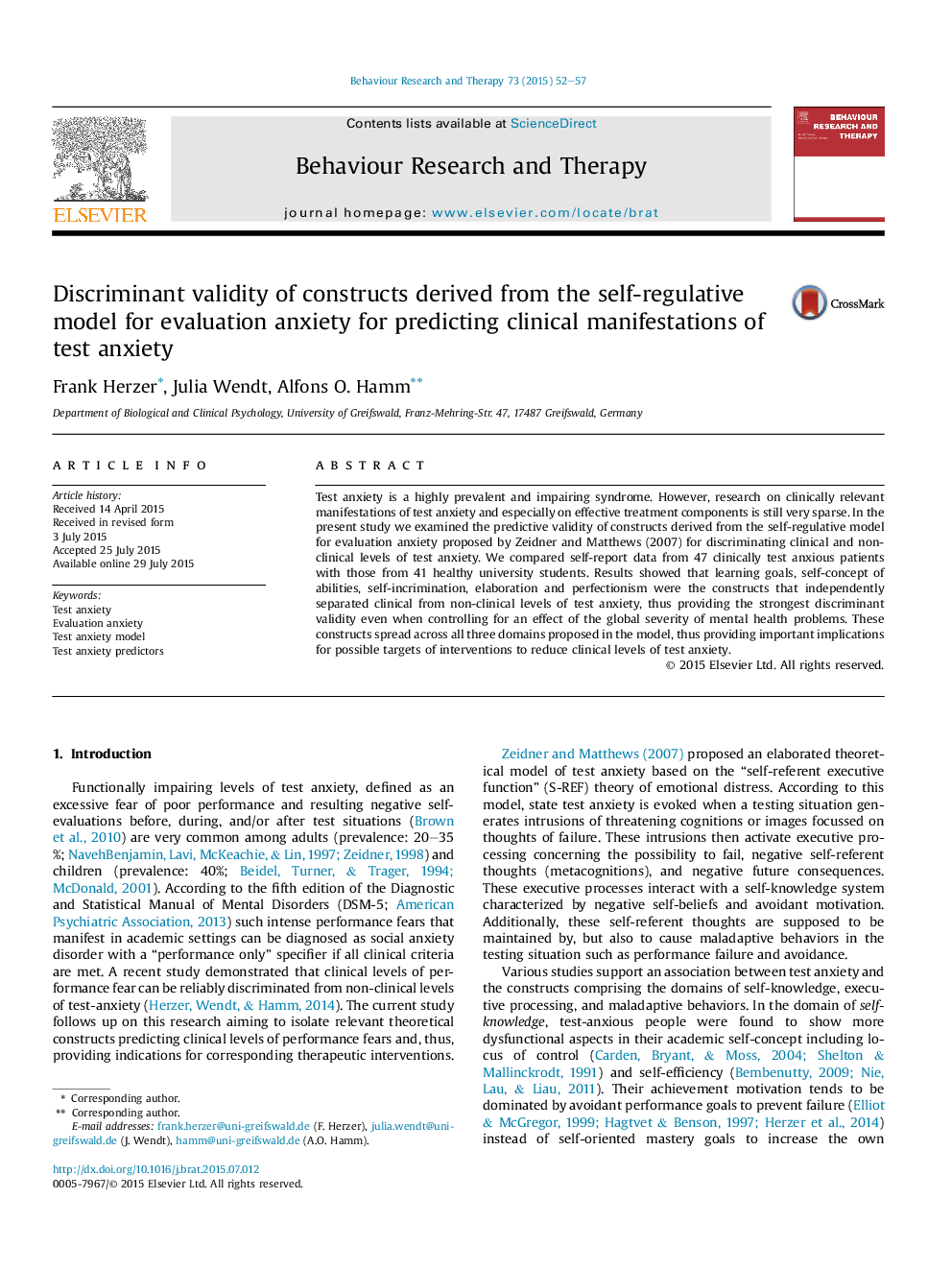| Article ID | Journal | Published Year | Pages | File Type |
|---|---|---|---|---|
| 7262242 | Behaviour Research and Therapy | 2015 | 6 Pages |
Abstract
Test anxiety is a highly prevalent and impairing syndrome. However, research on clinically relevant manifestations of test anxiety and especially on effective treatment components is still very sparse. In the present study we examined the predictive validity of constructs derived from the self-regulative model for evaluation anxiety proposed by Zeidner and Matthews (2007) for discriminating clinical and non-clinical levels of test anxiety. We compared self-report data from 47 clinically test anxious patients with those from 41 healthy university students. Results showed that learning goals, self-concept of abilities, self-incrimination, elaboration and perfectionism were the constructs that independently separated clinical from non-clinical levels of test anxiety, thus providing the strongest discriminant validity even when controlling for an effect of the global severity of mental health problems. These constructs spread across all three domains proposed in the model, thus providing important implications for possible targets of interventions to reduce clinical levels of test anxiety.
Keywords
Related Topics
Health Sciences
Medicine and Dentistry
Psychiatry and Mental Health
Authors
Frank Herzer, Julia Wendt, Alfons O. Hamm,
